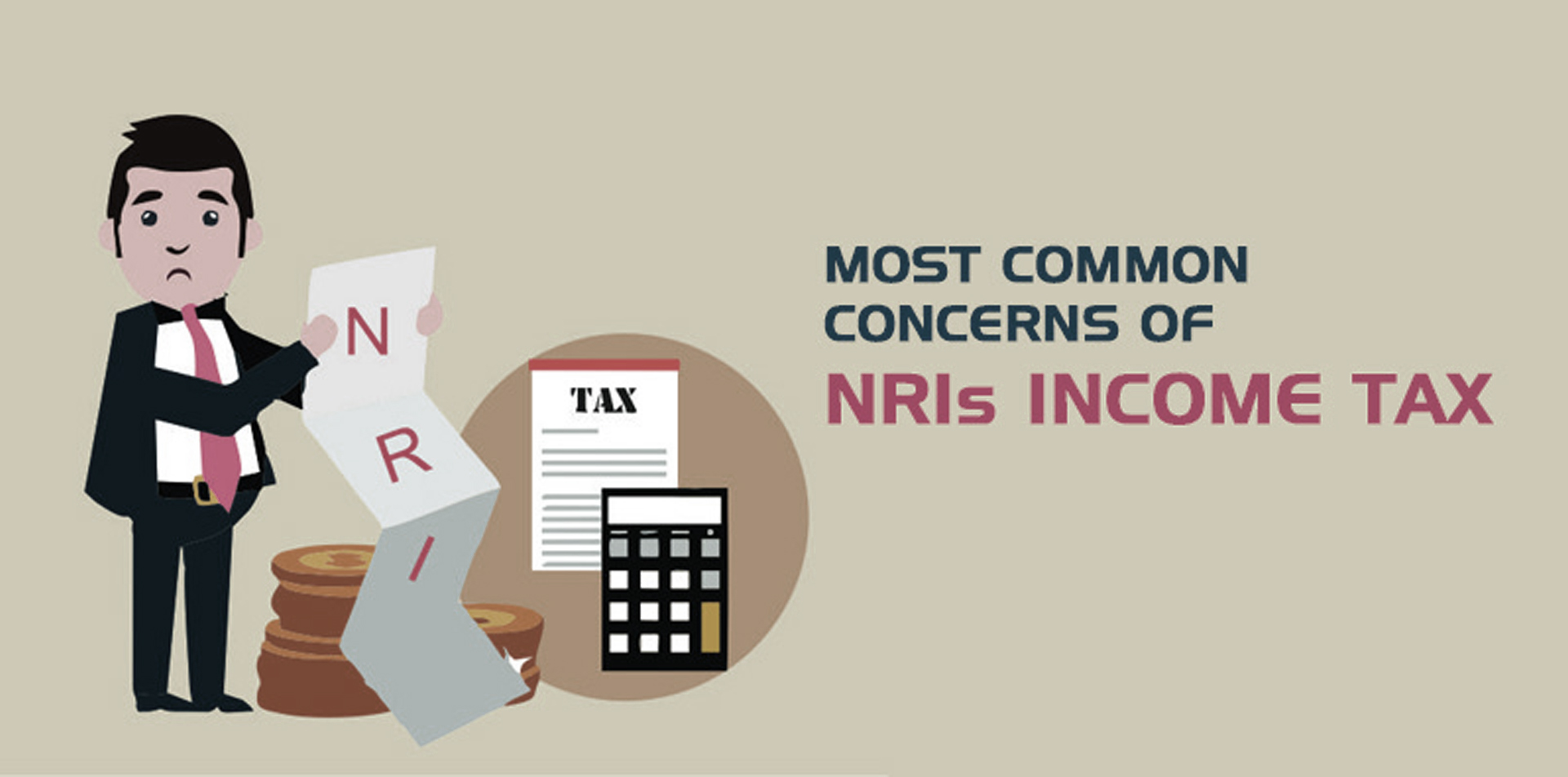Most Common Concerns of NRIs Regarding Income Tax

For taxpayers, grappling with income tax is a significant challenge. The complexity intensifies for non-resident Indians (NRIs) due to special regulations and a dynamic regulatory landscape. This article delves into the intricacies of income tax faced by NRIs, covering common concerns and potential solutions.
Understanding Tax Liability:
One of the primary concerns for NRIs is determining their liability to file an income tax return in India. NRIs must file returns if their taxable income in India exceeds the basic exemption limit of Rs 2.5 lakhs. This includes income from rentals and capital gains arising within India. Comprehending the Income Tax Act and relevant Double Taxation Avoidance Agreements (DTAA) is crucial for compliance, and seeking guidance from tax consultants can ensure proper filing.
Optimizing Tax Deductions:
Non-resident individuals can explore strategies to receive income with minimal or no tax deductions. Leveraging DTAA between their resident country and India is a viable option. These agreements often contain provisions to reduce tax obligations by preventing multiple taxation. Careful tax planning, understanding the tax implications of income streams, and investing in tax-efficient instruments can further help in optimizing deductions. NRIs can also obtain low/nil tax deduction certificates from their assessing officers for reduced TDS rates.
Utilizing DTAA Benefits:
To avail tax benefits under DTAA, obtaining a Tax Residency Certificate (TRC) is mandatory. NRIs must fill out Form 10F based on the TRC. This declaration is essential for claiming benefits under the applicable DTAA. It facilitates smooth transactions and ensures tax advantages between the resident country and India.
Tax Implications of Repatriation:
Repatriation of funds to India is generally not taxable under the Income Tax Act. This refers to bringing back funds earned outside India through legal channels. Workers in Gulf Countries transferring salaries to their families in India exemplify this scenario. As long as the repatriated income was earned abroad and is proven to be moved through authorized financial channels, it remains non-taxable.
Aadhaar-PAN Linking for NRIs:
For Indian residents, linking Aadhaar to PAN is mandatory under Section 139AA. However, NRIs are exempt from this requirement, as obtaining an Aadhaar number is not compulsory for them. Consequently, NRIs can continue using their PAN without linking it to Aadhaar.
Conclusion:
Navigating income tax as an NRI involves understanding tax obligations, optimizing deductions, leveraging DTAA benefits, considering the tax implications of repatriation, and staying informed about Aadhaar-PAN linking exemptions. Seeking professional advice ensures compliance and facilitates a smoother financial journey for NRIs.
